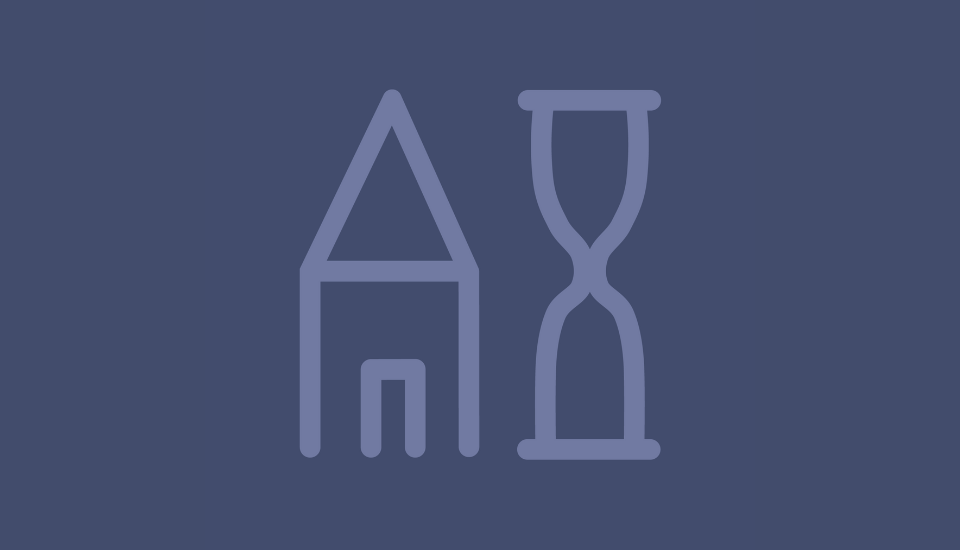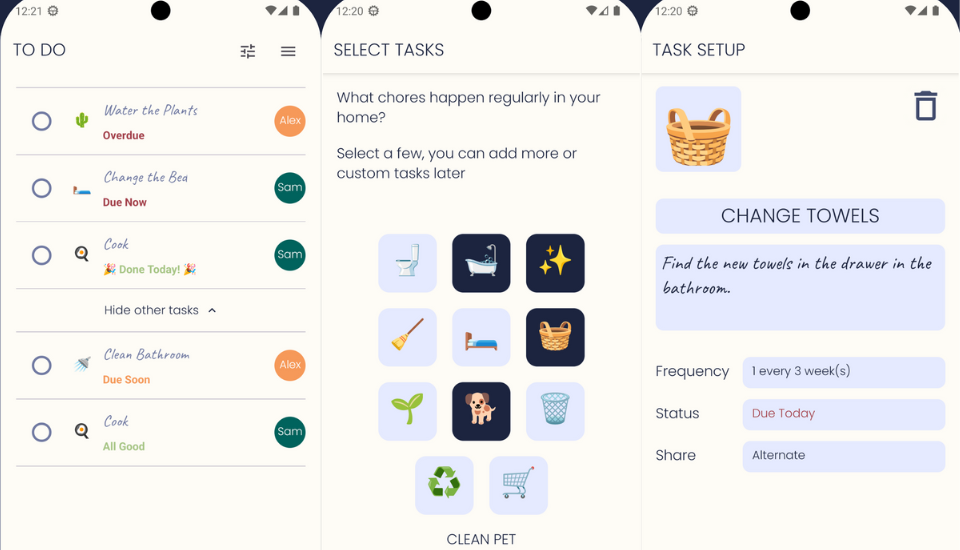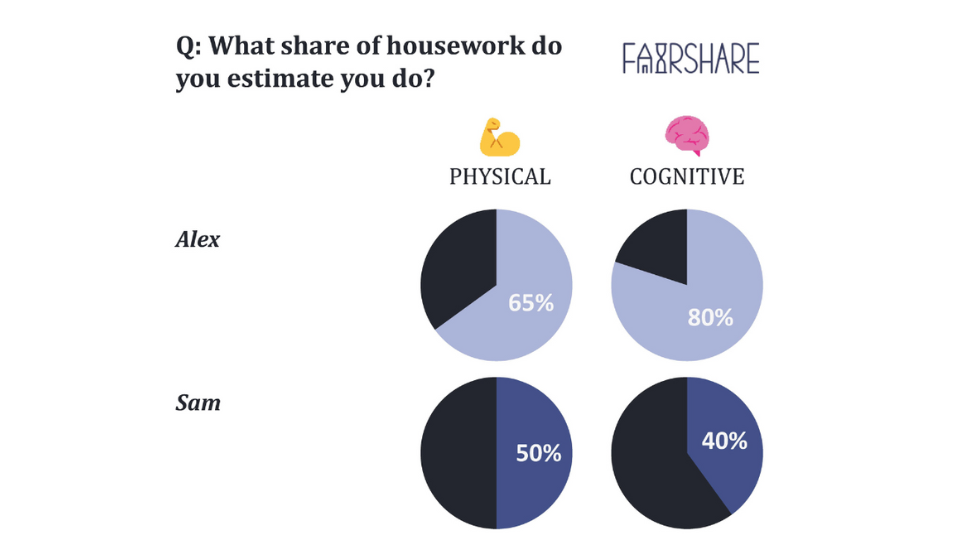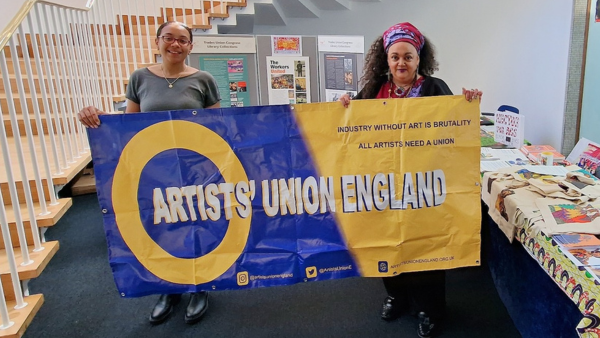As part of our special series of discussions with notable Fellows, Rachel Drapper, CEO and founder of Fairshare, discusses domestic labour inequity, gender roles and the way forward for those in our community who are striving for equity inside and outside the home.
A Harvard Business School MBA graduate and former strategy consultant turned researcher and startup founder, Rachel brings her expertise in gender and equity to our community and to the problem of sharing housework with the Fairshare app; technology dedicated to making housework easier to share.
We’re extremely excited to see how the RSA Fellowship benefits from Rachel’s expertise, and indeed how her work might profit from the kind of collaborations we know will come from being an engaged Fellow.
Could you share a bit about yourself and what motivated you to found Fairshare?
I am very fortunate in that I didn’t experience inequity first-hand until I entered the workforce. I was naively shocked at the gender inequity I observed – both at entry level into strategy consulting (back then at least), even more so in management roles and senior leadership, and especially on client sites when I specialised in transportation, including on international projects such as in Kuwait. Numerous experiences, from low-level exclusionary language and sexist jokes to sexual harassment, stand out as being foundational to my deeply held desire to advance gender equality. I became passionate about fairness, equity and giving everyone choice, agency and equal access to opportunities.

Since working on gender equity in the workplace, I couldn’t help but notice gender inequity in all sorts of other places outside of the workplace: in my male-dominated sports of rugby and cycling, in my MBA programme, where the gender split wasn’t miles off of 50:50, but where the classroom and social experience felt far from equitable, and in people’s homes – I became obsessed with how people share chores and childcare, and the apparently elusive goal of equal parenting.
How great a role does the splitting of labour within the household play in relational conflicts?
The division of household labour is a huge factor in relational conflicts. While it may not be the sole reason for a breakup, feeling overwhelmed and unsupported in managing household duties often contributes to feelings of resentment and dissatisfaction, and research has shown that gendered divisions of labour have been linked to reduced intimacy, and increased divorce. When left unresolved, the issue gets brought up in therapy and coaching, with an estimated half of all marriages seeking professional help at some point in time (Newstex, 2017), and up to four out of five people discussing the topic of roles and responsibilities at some point in these sessions (Fairshare, 2022). There is also increasing focus in research on the mental load (ie the thinking, planning, scheduling, organising, monitoring of tasks etc.), and recent studies (eg, Petts & Carlson, 2023) suggest that the division of this mental load, or cognitive labour, may be a unique stressor that is more detrimental for mothers’ mental health than physical housework.
In 2022, the World Economic Forum published a report stating that the UK has closed 78% of its gender gap. In your experience, what sort of barriers lie in the way of fully closing this gap?
It’s awesome that the UK has closed 78% of its gender gap. I think there are some significant barriers in place today to close the remainder. Laura Bates, in her book ‘Fix the System, Not the Women’, identifies five key UK institutions with systemic prejudice: education, politics, media, policing and criminal justice. I would add a few other barriers to the picture, mostly in the domestic sphere where my expertise lies. These include but are not limited to:
- Unequal maternity and paternity leave
- Exorbitant costs of childcare (which disproportionately impacts women and results in their shifting to part-time work or leaving the workforce altogether)
- Maternity discrimination
- Higher burden of elder care responsibilities that falls on women.
Tied into all of these factors are also the gender pension gap, and the gender leisure gap, which we are far from closing.
Do you believe that in the UK traditional gender roles are still heavily entrenched in the domestic sphere?
Unfortunately, yes. I believe traditional gender roles are very heavily entrenched in the UK, especially in the domestic sphere. Without a doubt, there has been huge progress for gender equity over recent years and some notable progress across generations, but there remains a very long way to go. I see the domestic sphere lagging massively behind the workplace, and other more public spheres, and I believe the assumption that things will simply improve over time is flawed. Expecting change without effort will not achieve the step-level change in the pace of progress that people, especially women, are increasingly seeking. Wanting the change alone is not enough to make it happen. It requires effort, resources, solutions, funding, legislation and actual behaviour change.
If you had to pick one, what do you think is the most significant driver to fuel change and achieve gender equity?
I believe progress towards parity in the domestic sphere is the most significant lever to advancing gender equity overall. If I could wave a magic wand and pick one thing to fuel positive change, I would immediately reform the UK’s parental leave policy to remove the structural inequality that is currently built into the system. The disparity in paid leave given to men and women upon having a child (two weeks versus 52 weeks) is utterly wild to me and underpins so many of the broader societal and cultural factors that enable gender inequality to persist.
Your startup, Fairshare, is hoping to address a facet of gender inequity: unequal split of responsibilities within the household. Could you speak more about the work that Fairshare does?

Fairshare is a social impact startup helping couples split chores, so they don’t split up. Our mission is to transform couples’ communication and improve relationships, while also advancing gender equity. Our approach incorporates four pillars (perceive, plan, practice and praise), and our mobile app, developed in collaboration with world-leading academics, helps households share chores and childcare – the physical and mental load of running a home and family – in more equitable ways. Alongside our tool, we also coach couples and collaborate with organisations, such as UNICEF, Deloitte, Virgin Media/O2, Harvard and others, to deliver talks and training to raise awareness of this important issue.
What are some small and everyday actions a Fellow can take to become more equitable within their spaces?
Talk about how you share chores. This stuff is very difficult – arguably impossible – to improve on your own, and progress requires a lot of intentional household communication. Take some time to discuss with your partner essential topics such as your roles and responsibilities at home, your parental or other role models, your preferences for sharing housework, etc. There are so many assumptions built in around how people operate at home, and most likely these haven’t been talked about explicitly or in much detail, and, chances are, you might not be on the same page.
Set intentions with your partner about how you would like to share housework in your home and check in about how you are doing against these goals. We recommend setting aside a regular (ideally, weekly) time to check in with your partner to talk about the boring stuff, so it doesn’t overflow into daily life and more fun things.

Most couples we work with are aiming for ‘balance’ or ‘equilibrium’ of some kind, with 80% of couples aspiring to a 50:50 split. Very few couples (fewer than one in five) are achieving this today (Fairshare survey, 2022). Sharing chores fairly, it turns out, is really hard. Fairshare recommends starting somewhere and starting small by changing one thing at a time to get closer to your goals. Fairshare has identified five chores – Fairshare’s First Five – which we suggest is the best entry point to start rebalancing household tasks. To begin with, it is worth figuring out if you and your partner are aligned on how often these basic tasks should happen.
Are you hopeful that in the future we will reach full gender equity, and for this to happen do you think we need systemic and top-down governmental change?
Yes absolutely, I am optimistic that we will achieve gender parity in the future, and I really hope it is sooner than predicted in 2154 (World Economic Forum, 2022). I believe this will only be possible through a combination of systemic, top-down policy change, grassroots activism, and advocacy at every level in between, to significantly change pervasive gendered social norms. I am eager for rapid progress towards parity, but I also recognise, in working on this topic for some years, that a healthy dose of patience is required. Habits around the house are deeply engrained, and change won’t happen overnight. That said, with more intention, attention, and gradual shifts in behaviour, I remain hugely optimistic that progress is possible in people’s own homes and lives, and in society at large. My own home – the first beta test for every Fairshare intervention – is a great example that progress is possible.
What attracted you to the RSA Fellowship?
In 2019 I attended an event on The Steps in the RSA and remember being so inspired by the grand venue and the interesting people I met at the event. During the introduction by an RSA staff member, they briefly mentioned Fulbright students could apply to become an RSA Fellow. I made a mental note to reach out when I was back in London from my master’s programme. Two and a half years later, when I returned to the UK and was going stir-crazy working from home, alone on Fairshare and research, I was thrilled to be accepted as an RSA Fellow. I immediately began going to work at the RSA Coffee House multiple times a week, enjoyed connecting with others working on very varied and interesting projects, and discovered the incredible library. Being an RSA Fellow has massively improved my enjoyment of being a solo founder, and the friendly faces of the RSA staff, notably Babs, Jane and Anna, make me feel like I have colleagues, which is a wonderful bonus.
Rachel Drapper became a Fellow of the RSA in 2021. You can connect with Rachel on our Circle community platform for Fellows and find out more about her work on Fairshare by signing up to the newsletter on the Fairshare website and through LinkedIn, Facebook, Instagram and TikTok.
Other blogs about entrepreneurship blogs you might be interested in
-
Fellows Festival 2024: changemaking for the future
Blog
Mike Thatcher
The 2024 Fellows Festival was the biggest and boldest so far, with a diverse range of high-profile speakers offering remarkable stories of courageous acts to make the world a better place.
-
Sophie Hague: me and my education
Blog
Sophie Hague
Sophie Hague, a 2022 Student Design Award winner, explains how design helped to identify the learning techniques that worked for her.
-
Zita Holbourne: Featured Fellow Q&A
Blog
Gamini Sethi
Zita Holbourne discusses her inspiring work, the fight to achieve equality and representation, success and what it looks like for her, and her advice to aspiring activists.




Be the first to write a comment
Comments
Please login to post a comment or reply
Don't have an account? Click here to register.